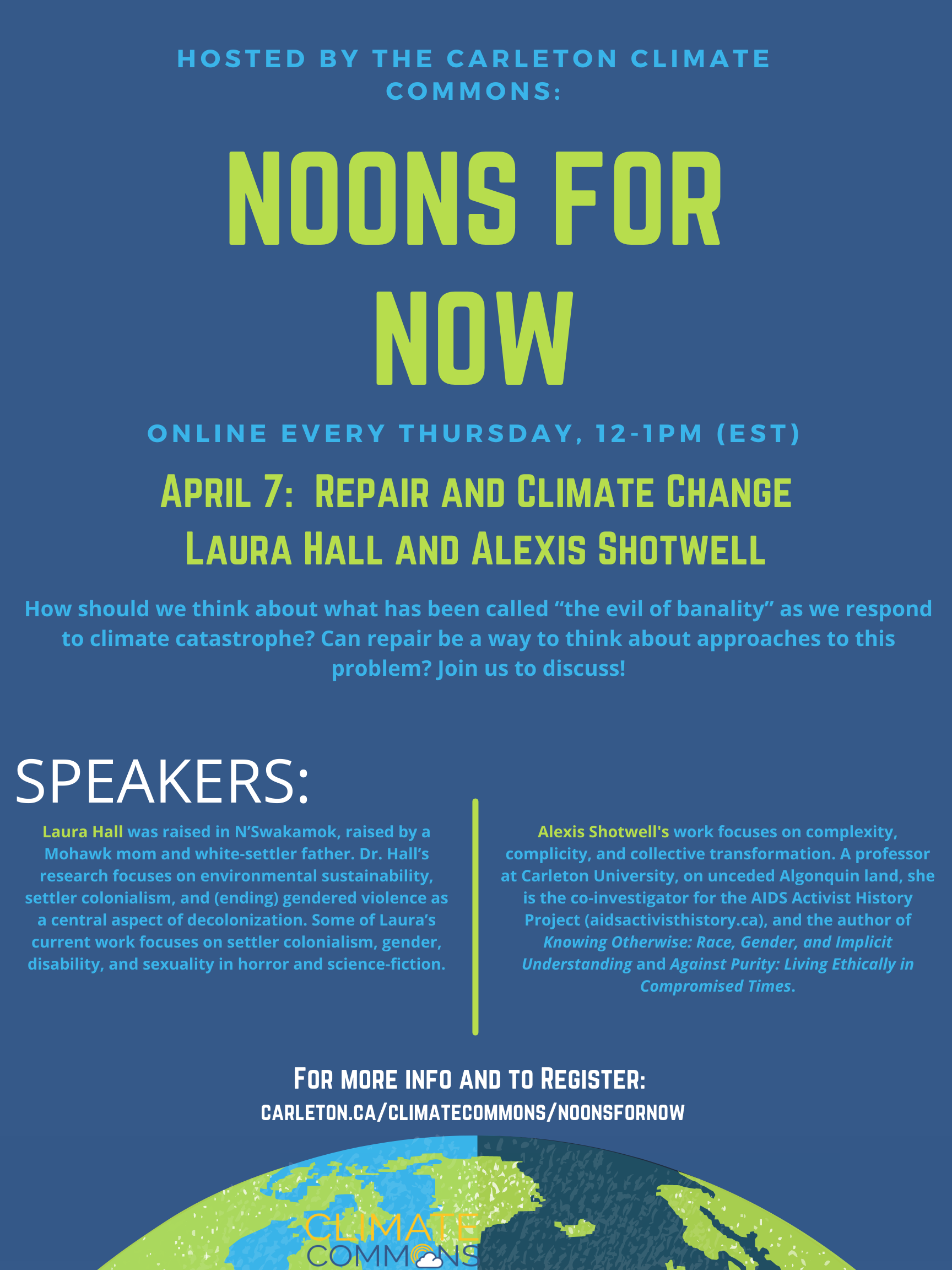
How should we think about what has been called “the evil of banality” as we respond to climate catastrophe? Can repair be a way to think about approaches to this problem? Join us to discuss!
Speakers:
Laura Hall was raised in N’Swakamok, raised by a Mohawk mom and white-settler father. Dr. Hall’s research focuses on environmental sustainability, settler colonialism, and (ending) gendered violence as a central aspect of decolonization. Some of Laura’s current work focuses on settler colonialism, gender, disability, and sexuality in horror and science-fiction.
Alexis Shotwell is a professor at Carleton University, on unceded Algonquin land. Her academic work addresses impurity, environmental justice, racial formation, disability, unspeakable and unspoken knowledge, sexuality, gender, and political transformation. Her political work focuses on queer liberation, Indigenous solidarity, and feminist community education. She also gives workshops on reducing suffering in our writing and teaching practices. She is the co-investigator for the AIDS Activist History Project (aidsactivisthistory.ca), and the author of Knowing Otherwise: Race, Gender, and Implicit Understanding and Against Purity: Living Ethically in Compromised Times.
Resource List
Theorizing repair and relation:
Katherine McKittrick, ed. Sylvia Wynter: On Being Human as Praxis, 2014.
Katherine McKittrick and Clyde Woods, ed. Black Geographies and the Politics of Place, 2007.
Eli Clare, Brilliant Imperfection: Grappling with Cure, 2017.
Elisabeth Spelman, Repair: The Impulse to Restore in a Fragile World, 2003.
Thinking about repair within settler colonialism:
Patrick Wolfe, “Settler colonialism and the elimination of the native,” Journal of Genocide Research, 2006.
Eve Tuck and K. Wayne Yang, “Decolonization is not a metaphor,” Decolonization, Indigeneity, Education & Society, 2012.
Drew Haydon Taylor, Cottagers and Indians, 2019.
To-Dos:
One idea that emerged from our conversation was the possibility of organizing a teach-in to specifically discuss and think through the practice of the land acknowledgement.